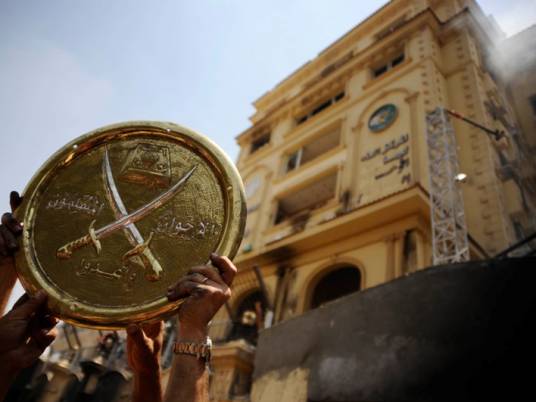
The Muslim Brotherhood, the arrest of whose supreme guide Mohammed Badie was ordered on Wednesday, is the oldest and biggest representative of political Sunni Islam in Egypt.
A history of the movement:
– March 1928: Muslim Brotherhood founded in the Suez Canal city of Ismailiya by Imam Hassan al-Banna, who was born in 1906. Banna takes on the title of guide of the movement.
It begins as a welfare group practising an Islamic ideology that caters to the middle and lower classes in an Egypt ruled by the aristocracy and under British influence.
It then takes on a political role, based on opposition to the British presence and in support of an Islamic state.
– December 1948: a Muslim Brother assassinates prime minister Mahmud Fahmi al-Nuqrashi, who had ordered the Brotherhood dissolved.
– February 1949: Banna is murdered by the secret police.
– 1952: The Brotherhood supports Arab nationalist Gamal Abdel Nasser's revolution, but differences and distrust quickly lead to a split and fierce crackdowns on the movement. After an assassination attempt in 1954, Nasser decides to ban the group.
– Between 1954 and 1970, during Nasser's presidency, thousands of members of the movement are arrested or go underground.
– 1966: Sayyed Qotb, a theoretician behind the movement who inspired its radicalisation, is hanged by Nasser's regime.
– 1971: Anwar Sadat succeeds Nasser. The Brotherhood has tense relations with the regime, which grants its leadership amnesties but officially bans the movement.
Sadat, vilified by many in the wider Arab world for signing a peace treaty with Israel without obtaining concessions for the Palestinians, is killed in 1981 by former members of the movement who have become extremists.
– 1984: The regime of president Hosni Mubarak recognises the movement as a religious organisation but refuses its registration as a political party. So the Brotherhood fields candidates on independent tickets.
After a breakthrough in 2005 legislative elections in which it gains one fifth of parliamentary seats, it emerges empty-handed from the first round of the 2010 elections and boycotts the second round, denouncing massive fraud.
– February 2011: Mubarak steps down and hands his powers to the military on the 18th day of a popular uprising. Only the Brotherhood's youth take part in the early stages, but the Islamist movement sides with it progressively.
The Brotherhood founds its political wing, the Freedom and Justice Party.
– June 30, 2012: Mohamed Morsy, who won 51.73 percent of the presidential vote, is sworn in as Egypt's first head of state elected in a free vote, and also the first Islamist and civilian to head the country.
– July 3, 2013: The army ousts Morsy, replacing him with head of the Supreme Constitutional Court Adly Mansour, pending new elections.
On July 5, Mansour orders the dissolution of the Shura Council, the Islamist-led legislative assembly.
– July 10: The movement spurns an offer to join a new interim government.
The public prosecutor orders the arrest of Badie and other top leaders of the movement for allegedly inciting violence that left 51 dead two days ago outside the Republican Guard headquarters in Cairo, where supporters of Morsy were calling for him to be reinstated.




